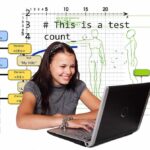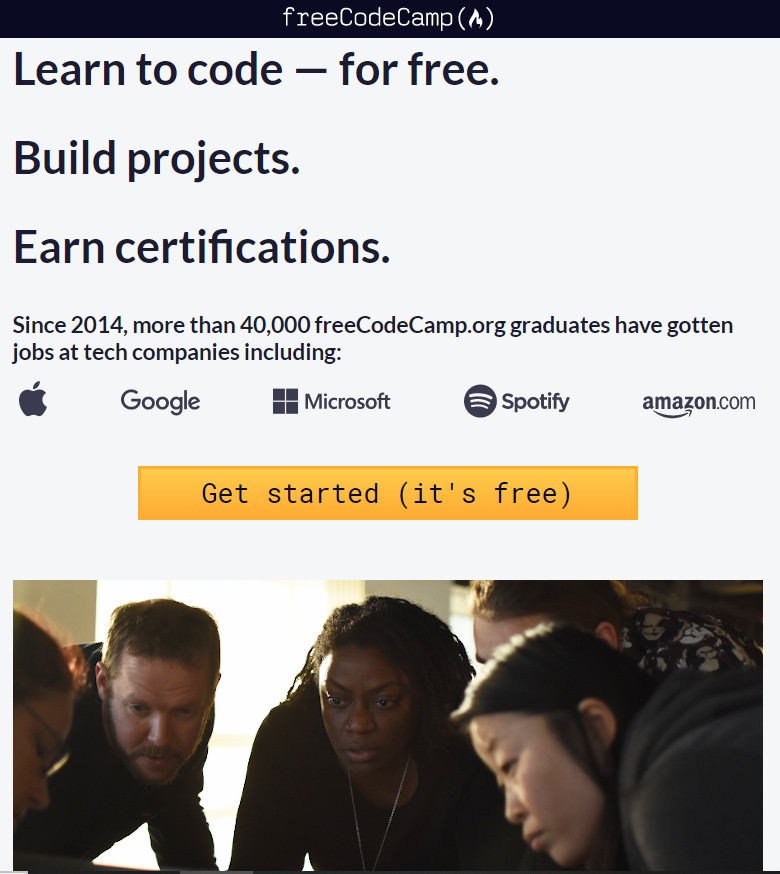Programming and computer science are essential skills in today’s world. They can be used to build websites and apps and develop software. Learning these skills opens up a wide range of career opportunities, from web development to software engineering to data science. But learning to code can be expensive, and not everyone has the budget to pay for courses or bootcamps.
That’s where free programming and computer science books come in. There are many great resources available online, and many of them are completely free. These books can cover a wide range of topics, from introductory programming concepts to more advanced topics like machine learning and artificial intelligence.
If you’re serious about learning to program, I encourage you to check out some of the many free programming and computer science books that are available below.
Here are just a few reasons why free programming and computer science books are a great way to learn:
- They’re affordable. Obviously, the biggest advantage of free books is that they’re free! This can be a huge savings, especially if you’re buying multiple books.
- They are accessible. Free books are available online, so you can access them from anywhere in the world. This is especially convenient for people who live in remote areas or who don’t have easy access to libraries.
- There’s a wide variety to choose from. There are free books available on a wide range of programming languages and topics, so you can find one that’s right for you.
- They’re comprehensive. Free books can cover a wide range of topics, so you can find one that’s right for your skill level and interests.
- They’re written by experts. Many free books are written by experienced programmers and computer scientists. This means that you can be confident that you’re getting accurate and up-to-date information.
Here are a few tips for using free programming and computer science books effectively:
- Choose a book that’s right for you. Consider your current skill level and your interests when choosing a book. If you’re a beginner, start with a book that covers the basics of programming. If you have some experience, you can choose a book that covers a more specific topic, such as web development or data science.
- Read actively. Don’t just skim through the text. Instead, take your time to understand the concepts that are being presented. Try to work through the examples and exercises in the book.
- Don’t be afraid to ask for help. If you get stuck, don’t hesitate to ask for help from a friend, family member, or online community. There are many people who are willing to help beginners learn to program.
Learning to program can be challenging, but it’s also very rewarding. Free programming and computer science books are a great way to get started on your journey to becoming a programmer. You can also find more free programming and computer science books and courses on these pages:
- Free Courses on Programming, Software Development and Computer Science
- Free Programming and Computer Books
Free Programming, Computer Science, and Information Systems Textbooks:
- A Byte of Python, by Swaroop CH
- Code Like a Pythonista: Idiomatic Python, by David Goodger
- Style Guide for Python, by Guido van Rossum et al
- Dive into Python, by Mark Pilgrim
- Python for Everybody by Allen B. Downey, Olin College
- How to Think Like a Computer Scientist: Learning with Python 3 by Peter Wentworth, Jeffrey Elkner, Allen B. Downey, and Chris Meyers.
- Python Programming For Beginners, 115 pages
- Foundations of Computer Science by Al Aho (Columbia) and Jeff Ullman (Stanford)
- How to Design Programs: An Introduction to Computing and Programming, Multiple Authors
- How to Think Like a Computer Scientist: Java by Allen B. Downey, Olin College
- Patterns for Beginning Programmers (with Examples in Java), by David Bernstein, James Madison University
- Processing XML with Java by by Elliotte Rusty Harold, 1120 pages
- How to Think Like a Computer Scientist: C ++ by Allen B. Downey, Olin College ( PDF)
- Object Oriented Programming in ANSI-C by Axel Schreiner, 221 pages
- The C Book by by Mike Banahan, Declan Brady and Mark Doran
- Writing Bug-Free C Code by Jerry Jongerius
- C – Elements of Style
- C++ In Action: Industrial Strength Programming Techniques, 485 pages (pdf)
- The Missing Link: An Introduction to Web Development and Programming by Michael Mendez
- Fundamentals of Algorithms
- Information Theory, Inference, and Learning Algorithms by David MacKay, Cambridge, 640 pages
- Algorithms and Complexity by by Herbert S. Wilf
- Problems on Algorithms by Ian Parberry and William Gasarch, 268 pages (pdf)
- Philosophy of Computer Science by William J. Rapaport, University at Buffalo, The State University of New York
- Principles of Computer System Design: An Introduction (Part II) by Jerome Saltzer and M. Frans Kaashoek. Download: whole book or course.
- The Programmers Stone
- Programming From the Ground Up by Jonathan Bartlett, 224 pages
- How to be a Programmer: A Short, Comprehensive, and Personal Summary by Robert L Read
- Practical Theory of Programming by Eric CR Hehner, 253 pages
- Beginning JavaScript, 4th Edition, 793 pages
- PHP Solutions: Dynamic Web Design Made Easy, 543 pages
- CGI Programming on the World Wide Web by Shishir Gundavaram
- SQL – The Complete Reference, 689 pages
- Structure and Interpretation of Computer Programs by Jerry Sussman & Julie Sussman (pdf)
- Software Engineering for Internet Applications by Eve Andersson, Philip Greenspun, and Andrew Grumet
- Artificial Intelligence: Foundations of Computational Agents by David Poole and Alan Mackworth, University of British Columbia
- Information Technology and the Networked Economy by Patrick McKeown, University of Georgia
- Introduction To MIPS Assembly Language Programming by Charles W. Kann III, Gettysburg College
- Neural Networks and Deep Learning, by Michael Nielsen, Research Fellow at the Recurse Center
- Principles of Programming Languages by Grad Students, Johns Hopkins
- Programming Languages: Application and Interpretation by Dr. Shriram Krishnamurthi, Brown University.
- A Beginners Guide to COBOL Programming, 77 pages
- Cobol Language Technical Standard, 196 pages
- IOS SDK Programming: a Beginners Guide
- Essential Pascal by Marco Cantù (pdf in a zip file)
- Numerical Recipes with Fortran 90 by William H. Press et al., 572 pages (pdf)
- Linux Device Drivers, Third Edition by by Jonathan Corbet, Alessandro Rubini, and Greg Kroah-Hartman
- Managing Projects with GNU make, 3rd Edition by Robert Mecklenburg, 300 pages
- FreeBSD Handbook by The FreeBSD Documentation Project
- OpenOffice.org XML Essentials by J. David Eisenberg
- Understanding the Linux Kernel, 542 pages (pdf)
- Advanced Linux Programming (.rar compressed file)
- Prolog and Natural-Language Analysis by Fernando C. N. Pereira and Stuart M. Shieber, U Penn & Harvard
- The Princeton Bitcoin Textbook by Arvind Narayanan (Princeton) and colleagues
- Bits, Signals, and Packets: An Introduction to Digital Communications and Networks by Hari Balakrishnan, Christopher Terman, and George Verghese, MIT
- The 60 Minutes Network Security Guide by the NSA Network and System Attack Center (SNAC)
- Computational Geometry by Nicholas M. Patrikalakis, Takashi Maekawa, MIT
- High Performance Computing by Charles Severance, University of Michigan
- Free Programming Books, from EPDF
- Programming and Computation Fundamentals books from LibreTexts Engineering:
- Foundations of Computation
- Foundations of Computation
- Programming Fundamentals
- Programming Fundamentals – A Modular Structured Approach using C++
- Structure and Interpretation of Computer Programs
- Object-Oriented Reengineering Patterns
- Algorithm Design and Analysis
- Mathematics for Computer Science
- Principles of Computer System Design
- Computer Science from the Bottom Up
- High Performance Computing
- Introduction to Data Science
- OOPweb courses, tutorials, references, guides and online books:
– love learning -your best ed lessons guide, Scott




